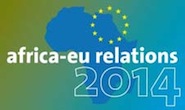+++ Guest post by William Hynes+++ Official Development Assistance (ODA) has for 45 years been the global standard for measuring donor efforts in support of development co-operation objectives. There have recently been calls for the concept to be modernised. Yet the reform proposals on the table constitute modest adjustments rather a radical overhaul. The scope for reform is also bounded by some high level decisions. The 2012 DAC High Level Meeting agreed to “maintain the definition of ODA”, while investigating how to modernise and clarify it, and discussions on the post 2015 development agenda – ...
++ SERIES: BUILDING THE POST-2015 DEVELOPMENT FRAMEWORK++ James Mackie co-authored this article. Discussions on the new development framework to replace the Millennium Development Goals after their target date of 2015 are well under way. Today, the European Commissioners for Environment and for Development presented a joint Communication outlining a proposal for an EU position on the post-2015 agenda. The EU wants to achieve ‘A Decent Life for All’, as the document’s title suggests. This European position comes fairly late in the day for the UN High-Level Panel on post-2015. Yet as Development Commissioner Piebalgs is one ...
This article was published on 6 December and is available on the European Report on Development blog. ++ SERIES: BUILDING THE POST-2015 DEVELOPMENT FRAMEWORK++ Preparation of the European Report on Development 2013 is now well underway. It will focus on “Elements for a Post-2015 Agenda” and aims at feeding into the debate about what development framework should replace the Millennium Development Goals after their expiry date in 2015. As part of the background research work for this report, the ERD team is conducting four country case studies (in Nepal, Peru, Rwanda and Côte d’Ivoire) to ensure that the report reflects ...
++ SERIES: BUILDING THE POST-2015 DEVELOPMENT FRAMEWORK ++ 87% of global youth live in developing countries and with high unemployment levels exclusion of youth is a major concern to many governments. It is often the young who make up the bulk of un- or underemployed in developing countries, about half of all under 25 year-olds live on less than 2 USD a day. The Africa Progress Panel predicts “a surge in the number of young people in Africa” in the next few years pointing out that the median age in Africa is currently 18, which ...
++ SERIES: BUILDING THE POST-2015 DEVELOPMENT FRAMEWORK++ Policy debates in international development frequently forget to acknowledge that the actions of individual citizens are often as least as important as the large development interventions. In Haiti, benefits from remittances sent home by migrants equal nearly 20% of GDP – more than twice the earnings from the country’s exports. Similarly, the reduction of income poverty in Nepal from 42% to 26% in 15 years was not mainly due to foreign direct investments, nor due to Official Development Assistance, but rather due to outward labour migration and remittances. ...
Coming Wednesday, on the 16th of May, the new European Report on Development 2011-2012, authored by ODI, DIIE and ECDPM, will be launched. This report looks at increasing scarcity and how it is likely to affect the prospects of furthering inclusive and sustainable development. Increasing scarcity of land and water has already led to large changes in ownership and usage of these natural resources, and emerging evidence is clearly pointing to negative outcomes for the poor. In addition, the changes in land use patterns in developing countries are not contributing to a transition to a ...
Water, energy and land belong to the most under-pressure resources today. This year’s European Report on Development, to be launched in mid-May 2012, focuses on these 3 key natural resources and analyses how the ways they are managed affect development objectives. The Report examines the constraints on each, the interrelationships between them and considers how water, energy and land can be managed together to promote economic growth in the poorest developing countries – growth that is both socially inclusive and environmentally sustainable. While the Report’s layout and formal launch are being prepared, this blog post, ...
During the next few months, a team of authors from the Overseas Development Institute (ODI), the German Development Institute (DIE) and the European Centre for Development Policy Management (ECDPM) will be busy with drafting the 2012 European Report on Development (ERD). Similar to the first two editions, this report will be prepared through a collaborative effort, to which many researchers from other institutions and parts of the world will contribute. The focus of this report will be on how natural resource management can promote inclusive and sustainable growth. Within this overall theme the report will ...
On the 18th and 19th May, ECDPM hosted the partners currently engaged in formulating the European Development Report 2012. This was a follow-up to previous meetings in London and Brussels and aimed at furthering discussions on the structure and content of the report among whilst also bringing in experts on the topics relating to the title of the report: “Effective Natural Resource Management for Inclusive and Sustainable Growth in the Context of Scarcity and Climate Change”. While this is a broad theme for one report and clearly needs a focal topic and some definitions (not ...

















